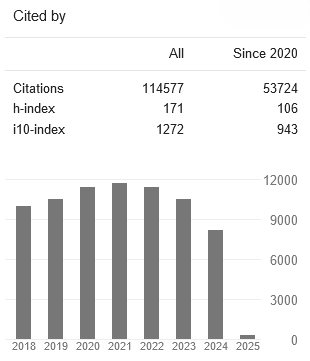The Impact of Coaching Interventions on Employee Performance, Motivation, and Organizational Adaptability: An Experimental Study in the Petrochemical Industry
- Maryam Kooh Givi
Abstract
This quasi-experiment evaluates how employees in an Iranian petrochemical sector respond to formal training grounded in the GROW model, and in which ways such interventions have impacts on their performance, work motivation, and organizational flexibility. With increasing industrial complexity, market turmoil, and uncertainty among workers, organizations need evidence-based and scalable interventions to enhance worker outcomes. Stratified random sampling involved 60 employees, split into experimental and control groups. The intervention group had eight 90-minute coaching sessions within eight weeks comprising goal-setting, reflective learning, and behavioral activation. Adaptability, motivation, and performance were measured at pre-test, post-test, and one-month follow-up using standard measures. Statistical analyses were conducted with the use of MANCOVA with pre-test scores as covariates. Results showed statistically significant changes on all outcome measures in the intervention condition with large effect sizes (partial η² > 0.25) and statistical power levels > 0.95. Effects were sustained at follow-up and there were no significant gender effects. The results support Self-Determination Theory and Social Cognitive Theory by demonstrating how coaching can be applied to facilitate self-regulation of behavior and effective coping in high-stress work environments. The study also suggests potential neuropsychological mechanisms, as underpinned by recent fMRI research into motivation regulation and behavioral change, and suggests extension beyond the petrochemical sector to manufacturing and services organizations. Systematic coaching models such as GROW can in general not only be used as instruments of leadership development but also as strategic drivers of performance and behavioral change at organizational levels. Future studies should investigate longer follow-up durations and investigate the neural underpinnings of coaching interventions.
- Full Text:
 PDF
PDF
- DOI:10.5539/ijbm.v20n5p246
Journal Metrics
Google-based Impact Factor (2023): 0.86
h-index(2023): 152
i10-index(2023): 1168

Index
- Academic Journals Database
- ACNP
- AIDEA list (Italian Academy of Business Administration)
- ANVUR (Italian National Agency for the Evaluation of Universities and Research Institutes)
- Berkeley Library
- CNKI Scholar
- COPAC
- EBSCOhost
- Electronic Journals Library
- Elektronische Zeitschriftenbibliothek (EZB)
- EuroPub Database
- Excellence in Research for Australia (ERA)
- Genamics JournalSeek
- GETIT@YALE (Yale University Library)
- IBZ Online
- JournalTOCs
- Library and Archives Canada
- LOCKSS
- MIAR
- National Library of Australia
- Norwegian Centre for Research Data (NSD)
- PKP Open Archives Harvester
- Publons
- Qualis/CAPES
- RePEc
- ROAD
- Scilit
- SHERPA/RoMEO
- Standard Periodical Directory
- Universe Digital Library
- UoS Library
- WorldCat
- ZBW-German National Library of Economics
Contact
- Stephen LeeEditorial Assistant
- ijbm@ccsenet.org
